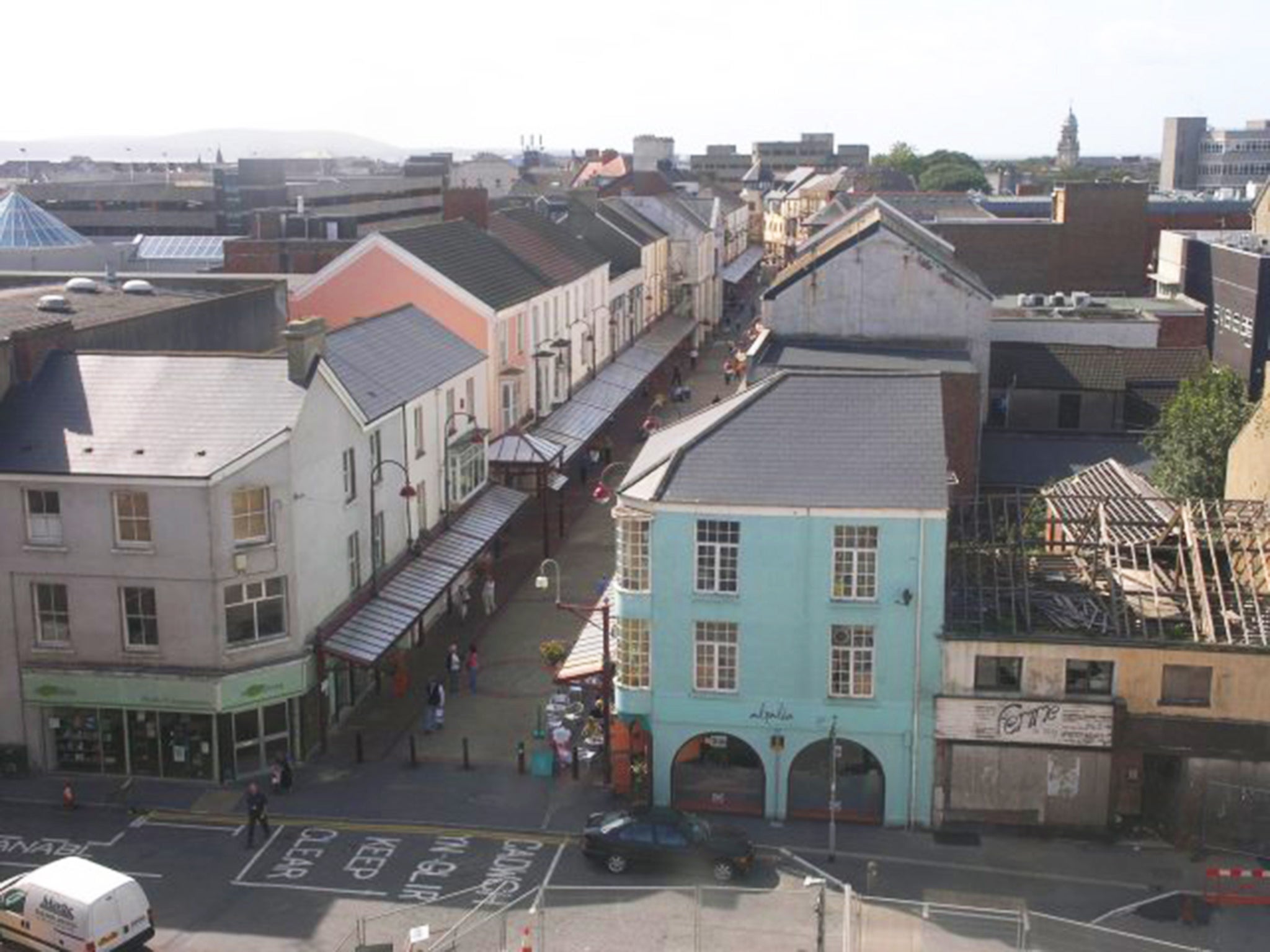Property prices continue to climb - but not in Wales and Scotland
Home prices are booming in England, but beginning to flatten out north and west of the border

Your support helps us to tell the story
From reproductive rights to climate change to Big Tech, The Independent is on the ground when the story is developing. Whether it's investigating the financials of Elon Musk's pro-Trump PAC or producing our latest documentary, 'The A Word', which shines a light on the American women fighting for reproductive rights, we know how important it is to parse out the facts from the messaging.
At such a critical moment in US history, we need reporters on the ground. Your donation allows us to keep sending journalists to speak to both sides of the story.
The Independent is trusted by Americans across the entire political spectrum. And unlike many other quality news outlets, we choose not to lock Americans out of our reporting and analysis with paywalls. We believe quality journalism should be available to everyone, paid for by those who can afford it.
Your support makes all the difference.Headline UK house prices increased by 7.7 per cent in the year to November 2015, according to official figures published by the Office of National Statistics. But while experts predict further similar rises ahead, drilling down a little into the figures reveals a growing and alarming divide between England, Wales and Scotland.
While prices in England proved very healthy and climbed by an average 8.3 per cent over the 12 months, there was a very different story in the rest of the country. In Northern Ireland the property growth was 4.6 per cent, but in Wales prices climbed just 1.3 per cent over the year and in Scotland, price inflation was a desultory 0.4 per cent.
That leaves potential homeowners and movers in Wales and Scotland in a different position with average prices flattening out in both countries.
“House prices in Wales and Scotland - the last bastions of heavy industry – are dragging behind, completely out of kilter with other parts of the UK which are steaming ahead,” pointed out Rob Weaver, director of investments at crowdfunding platform Property Partner.
Both nations are being battered by global economic conditions. With North Sea oil prices sinking even lower, Scotland will continue to feel the relative pain in the residential housing market, he warned. “The knock-on effect is stagnating property prices over the past year, and the future doesn’t look any brighter in comparison to the rest of Britain.
“Likewise, job insecurity is hitting confidence in Wales with would-be buyers hesitating to enter the housing market,” he added. “And now with the latest job losses in the country’s vital steel industry, it is worrying indeed not just for property but the wider Welsh economy.”
Regional house prices reflect economic trends in the locality. Wider factors like employment rates, income levels and consumer confidence all contribute to housing market activity and house prices, explained Brian Murphy, head of lending at brokers the Mortgage Advice Bureau.
“Recently, both Wales and Scotland have been affected by problems in the steel and oil industry respectively,” he confirmed. Limited wage growth – Wales has the lowest annual income of any UK region – and a lack of confidence in employment prospects are unlikely to encourage housing transactions.”
There seems little good news ahead as he predicts that things will get worse. “Property turnover has slowed thanks to a lack of homes coming onto the market. This is a UK-wide issue, but in areas where demand is already relatively low, this is likely to exacerbate the problem.”
Jeremy Leaf, a former RICS chairman and estate agent, advises people to ignore the national figures and act according to local markets. “There are limitations with a national average house-price index as it can mask significant regional differences.
“While such surveys are useful as a general indication as to what is going on with the market, there is no substitute for doing your own research in your locality and getting independent professional advice,” he said.
In particular potential homebuyers in Wales and Scotland could be thinking of offering under the asking price. That would be a hopeless tactic in the booming south, but could well help save a packet in Scotland and Wales, and even in the north of England where prices are also remaining fairly static.
Meanwhile, estimates of continuing price inflation in 2016 sends out a warning to young people, warned Campbell Robb, Shelter’s chief executive. “The further rise in house prices is another blow to the millions of people left priced out of a home of their own,” he said.
“Those without access to the bank of Mum and Dad face a lifetime of expensive and unstable private renting, unlikely to be able to save anything at all, let alone enough for the £40,000 deposit needed for a so-called ‘affordable’ starter home.”
Join our commenting forum
Join thought-provoking conversations, follow other Independent readers and see their replies
Comments